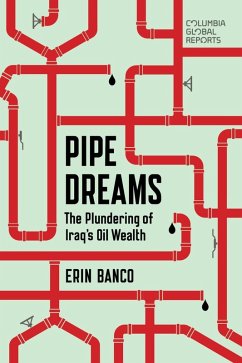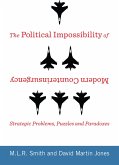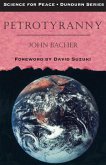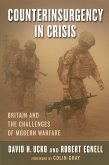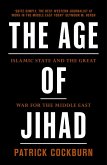What happened to Iraq's oil wealth?
Iraq sits on top of more than 140 billion barrels of oil, making it the owner of the world's fifth largest reserves. When the United States invaded in 2003, the Bush Administration promised that oil revenueaccording to one report, totaling some $700 billion since the invasion, accounting for at least 80 percent of the Iraqi government budgetwould be used to win the war and to rebuild and democratize the country. But fifteen years later, those dreams have been shattered. The economy has flat-lined, millions of people are internally displaced, and institutions like the International Monetary Fund and the World Bank have had to provide billions of dollars to the country every year. Where did all the oil revenue go?
Based on court documents and on exclusive interviews with sources who have investigated energy companies, American, British and Iraqi government officials, and the middlemen between them, reporter Erin Banco traveled to oil-rich Iraqi Kurdistanan autonomous region that holds, according to the regional government, some 45 billion barrels of crudeto uncover how widespread corruption, tribal cronyism, kickbacks to political parties, and the war with ISIS have contributed to the plundering of Iraq's oil wealth. The region's economy and political stability have been on the brink of collapse, and local people are suffering. Pipe Dreams is a cautionary tale that reveals how the dream of an oil-financed, American-style democracy in Iraqi Kurdistan now looks like a completely unrealistic fantasy.
Iraq sits on top of more than 140 billion barrels of oil, making it the owner of the world's fifth largest reserves. When the United States invaded in 2003, the Bush Administration promised that oil revenueaccording to one report, totaling some $700 billion since the invasion, accounting for at least 80 percent of the Iraqi government budgetwould be used to win the war and to rebuild and democratize the country. But fifteen years later, those dreams have been shattered. The economy has flat-lined, millions of people are internally displaced, and institutions like the International Monetary Fund and the World Bank have had to provide billions of dollars to the country every year. Where did all the oil revenue go?
Based on court documents and on exclusive interviews with sources who have investigated energy companies, American, British and Iraqi government officials, and the middlemen between them, reporter Erin Banco traveled to oil-rich Iraqi Kurdistanan autonomous region that holds, according to the regional government, some 45 billion barrels of crudeto uncover how widespread corruption, tribal cronyism, kickbacks to political parties, and the war with ISIS have contributed to the plundering of Iraq's oil wealth. The region's economy and political stability have been on the brink of collapse, and local people are suffering. Pipe Dreams is a cautionary tale that reveals how the dream of an oil-financed, American-style democracy in Iraqi Kurdistan now looks like a completely unrealistic fantasy.
Dieser Download kann aus rechtlichen Gründen nur mit Rechnungsadresse in A, D ausgeliefert werden.

